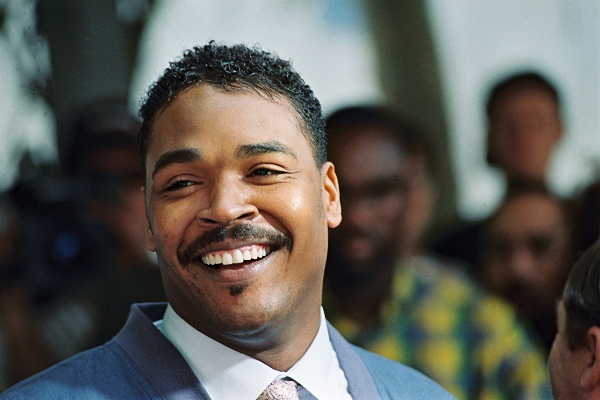The late Auberon Waugh advised his readers to reflect on the case of David Flannigan when considering the munificent compensation often awarded to people after awful events. Mr Flannigan had been estranged from his parents for two years before the night of 21 December 1988, when Pan Am Flight 103 fell onto the family’s house in Lockerbie, killing all but one other member of his immediate family. Through a thoughtless, inhumane, process of compensation Flannigan (who had been a spray-painter) became a millionaire. Just over five years later, at the age of 24 — after fast cars, drink and drugs — he was found dead at a beach resort in Thailand.
I thought of Flannigan again this morning when reading reports of the death of Rodney King. In 1991, while on parole, Mr King had tried to outrun a police car and was subsequently savagely beaten by Los Angeles Police. That horrific incident, famously caught on tape, and the unbelievable inability of the jury at the ensuing trial to find the policemen involved guilty of brutality, sparked the LA riots which claimed the lives of 53 people. The police brutality was one crime. The failure of the trial another. But why, rather than simply receiving as much medical and psychological help and support as possible, should King have come out of all of this a millionaire? For King was subsequently awarded $3.8 million in compensation. It is depressingly unsurprising that he should be found dead in his swimming pool at the age of just 47.
Mr King was very nearly beaten to death. No monetary award could compensate for that. Any more than a price can be put on the suffering of a young man who has lost nearly all of his immediate family. A certain amount of financial compensation after such nightmares (for lost earnings and so on) is sensible and decent. But why do our societies think that one way to help people through terrible events is for them to hit the financial jackpot? Far from helping them cope with or ‘get over’ events, it often has exactly the opposite effect, exacerbating existing troubles and adding a whole selection of new ones. And perhaps worst of all, it does all this while freeing the person in question of any remaining need to work. So it strips them not only of one of the best ways to derive meaning and self-esteem from life, but one of the only techniques available to just get on with things.
Whatever horrors people have suffered, there is an indecency about the creation of victim millionaires. Money does not blot out suffering, but there is every sign that doled out in unexpectedly large portions, it significantly adds to it.
 Douglas Murray
Douglas Murray
Rodney King and compensation






Comments